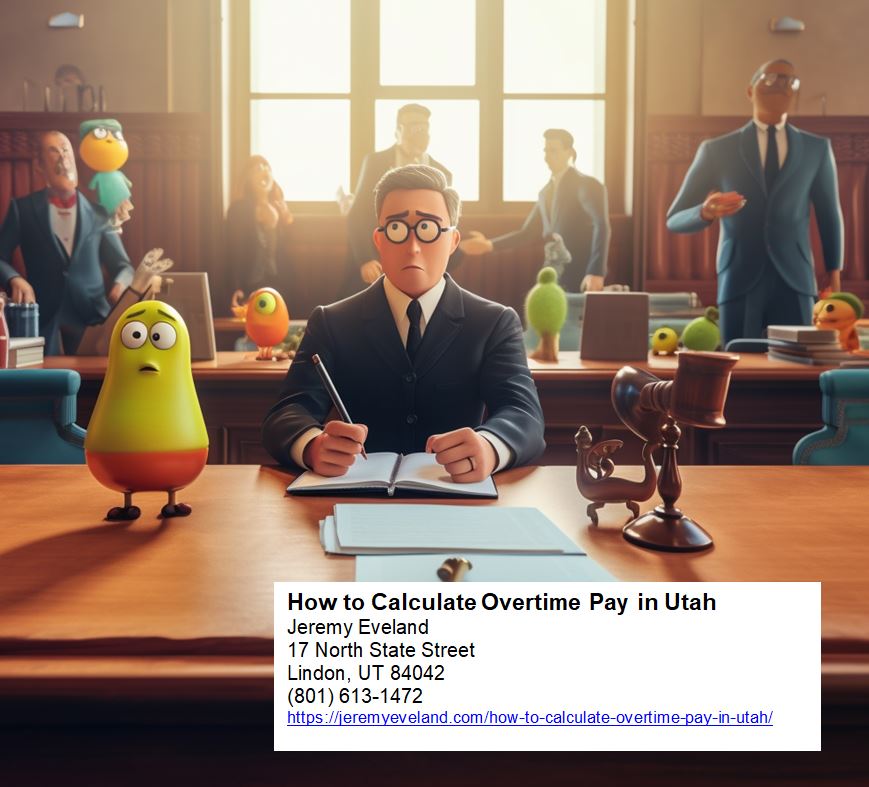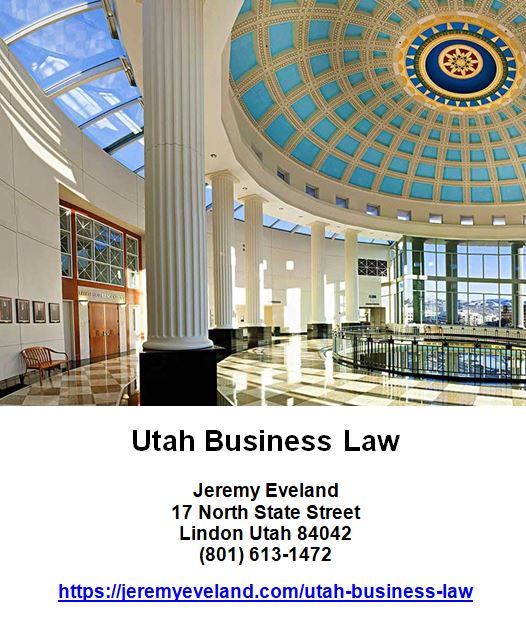As a business owner or employer in the state of Utah, it is crucial to have a comprehensive understanding of the state’s wage and hour laws. These laws dictate how you compensate your employees, ensuring fair treatment, and compliance with legal requirements. By familiarizing yourself with Utah’s wage and hour laws, you can protect your business from potential legal disputes and penalties. In this article, we will delve into the intricacies of Utah’s wage and hour laws, equipping you with the knowledge you need to ensure compliance and avoid potential legal pitfalls. Whether you are a small business owner or a human resources professional, this article aims to provide you with valuable insights into the regulations governing wage and hour practices in Utah.
Overview of Utah’s Wage and Hour Laws
Utah’s Wage and Hour Laws are in place to protect the rights of employees and ensure they receive fair compensation for their work. These laws establish guidelines for minimum wage, overtime pay, record keeping, and enforcement. It is essential for employers and employees in Utah to have a clear understanding of these laws to ensure compliance and avoid potential legal issues.
Scope and Purpose of Utah’s Wage and Hour Laws
Utah’s Wage and Hour Laws apply to all employers and employees within the state, regardless of the size of the company or the industry. The purpose of these laws is to set minimum standards for wages, promote fair competition among businesses, prevent exploitation of employees, and ensure a level playing field for all.
Key Definitions
To understand Utah’s Wage and Hour Laws thoroughly, it is essential to familiarize yourself with key definitions used in these laws. Some important definitions include:
- Employee: Any individual who is employed by an employer under an express or implied contract.
- Employer: Any person or entity that employs one or more individuals within the state of Utah.
- Minimum Wage: The lowest hourly wage that employers are required to pay employees for their work.
These definitions are crucial in determining the rights and responsibilities of both employers and employees under Utah’s Wage and Hour Laws.
Minimum Wage in Utah
Utah’s current minimum wage rate is $7.25 per hour. However, there are certain exceptions and variations to the minimum wage depending on the type of employee.
Overtime Pay in Utah
Utah law requires employers to pay eligible employees overtime pay for any hours worked beyond 40 hours in a workweek. Overtime pay is calculated at a rate of 1.5 times the employee’s regular rate of pay.
Exemptions from Minimum Wage and Overtime Requirements
While most employees are entitled to receive minimum wage and overtime pay, there are exemptions to these requirements for specific categories of workers. These exemptions are based on the nature of the employee’s job duties and the salary they receive.
Record Keeping and Payroll Practices
Utah’s Wage and Hour Laws also outline specific requirements for record keeping and payroll practices that employers must adhere to. These requirements include accurate timekeeping, maintenance of payroll records, provisions for meal and rest breaks, and proper handling of wage notices and final paychecks.
Enforcement and Penalties
The Utah Labor Commission is responsible for enforcing Utah’s Wage and Hour Laws. The commission investigates complaints and conducts audits to ensure employers’ compliance with these laws. Employers found to be in violation of the laws may face penalties, including fines and potential legal action.
Utah Minimum Wage
Current Minimum Wage Rate
The current minimum wage rate in Utah is $7.25 per hour. This rate applies to most employees, including those in the retail, service, and manufacturing industries. It is crucial for employers to ensure they are paying their employees at least the minimum wage to avoid legal consequences.
Tipped Employees
Tipped employees, such as waitstaff or bartenders, may be paid a lower direct hourly wage as long as their total earnings, including tips, meet or exceed the minimum wage. However, the direct wage paid by the employer must be at least $2.13 per hour.
Youth Minimum Wage
Utah also has a separate minimum wage for employees under the age of 18. The youth minimum wage is set at 85% of the regular minimum wage, which means these employees must be paid at least $6.16 per hour.
Future Minimum Wage Changes
Utah’s minimum wage is linked to the federal minimum wage rate. If the federal minimum wage increases in the future, Utah’s minimum wage will adjust accordingly. It is essential for employers to stay informed about any potential changes to the minimum wage to ensure compliance.

Utah Overtime Pay
Eligibility for Overtime Pay
In Utah, most employees are entitled to overtime pay for any hours worked beyond 40 hours in a workweek. However, certain categories of employees are exempt from overtime pay requirements, including executives, professionals, administrative employees, and certain agricultural workers.
Calculation of Overtime Pay
Overtime pay in Utah is calculated at a rate of 1.5 times the employee’s regular rate of pay. This rate applies to all hours worked beyond 40 hours in a workweek.
Overtime Pay for Salaried Employees
Salaried employees may still be eligible for overtime pay depending on their job duties and salary. If a salaried employee does not meet the criteria for an exemption, they must be paid overtime for any hours worked in excess of 40 hours per week.
Overtime Pay for Independent Contractors
Independent contractors are not eligible for overtime pay under Utah’s Wage and Hour Laws. However, it is crucial to properly classify workers as employees or independent contractors to avoid misclassification issues and potential legal consequences.
Exemptions from Minimum Wage and Overtime Requirements
White-Collar Exemptions
Under Utah law, certain white-collar employees may be exempt from both minimum wage and overtime requirements. These employees typically perform executive, administrative, or professional duties and receive a salary that meets the minimum criteria set forth by the law.
Outside Sales Exemption
Employees who primarily engage in outside sales are exempt from minimum wage and overtime requirements in Utah. To qualify for this exemption, the employee’s primary duty must involve making sales or obtaining orders outside of their regular workplace.
Administrative Exemption
Administrative employees who perform non-manual work directly related to management or general business operations may be exempt from minimum wage and overtime requirements in Utah. This exemption applies to employees who exercise discretion and independent judgment in significant matters.
Professional Exemption
Professional employees, such as lawyers, doctors, or architects, may be exempt from minimum wage and overtime requirements if their primary duty involves performing work that requires advanced knowledge and intellectual skills.
Computer Employee Exemption
Computer employees who are highly skilled in computer systems analysis, programming, or software engineering may be exempt from minimum wage and overtime requirements in Utah. This exemption applies to employees whose primary duty involves computer-related work and who receive a salary that meets the minimum criteria set forth by the law.
Other Exemptions
Utah’s Wage and Hour Laws provide several other exemptions from minimum wage and overtime requirements, including exemptions for certain agricultural workers, salespeople employed by small retail establishments, and employees engaged in certain seasonal amusement or recreational activities.
Record Keeping and Payroll Practices
Employee Timekeeping
Utah law requires employers to maintain accurate records of all hours worked by their employees, including the time they start and finish work each day, as well as any meal or rest breaks taken. These records must be kept for at least three years.
Payroll Records
Employers in Utah are also required to keep payroll records that accurately reflect each employee’s name, address, occupation, rate of pay, hours worked, deductions, and total compensation. These records must be readily available for inspection by the Utah Labor Commission.
Meal and Rest Breaks
Utah law mandates that employers must provide meal breaks and rest breaks to their employees. Employees who work at least three continuous hours are entitled to a 30-minute unpaid meal break, and employees who work at least two continuous hours are entitled to a 10-minute paid rest break.
Deductions and Withholdings
Employers may make deductions from employee wages for certain purposes, such as taxes, benefits, or legally required withholdings. However, these deductions must be in compliance with both state and federal laws, and employers must provide employees with a detailed statement of earnings and deductions.
Wage Notices
When hiring a new employee in Utah, employers are required to provide a “notice of wage rights” that outlines the employee’s pay rate, pay period, and any applicable deductions. This notice must be provided in writing and signed by both the employer and the employee.
Final Paychecks
Upon termination of employment, Utah law requires employers to timely pay all wages owed to the employee, including any accrued but unused vacation or sick leave. Employers who fail to comply with this requirement may face penalties.
Enforcement and Penalties
Utah Labor Commission
The Utah Labor Commission is responsible for enforcing Utah’s Wage and Hour Laws. It receives complaints from employees, conducts investigations, and initiates legal action against employers found to be in violation of these laws.
Complaints and Investigations
Employees who believe their rights under Utah’s Wage and Hour Laws have been violated can file a complaint with the Utah Labor Commission. The Commission will then conduct an investigation to determine if a violation has occurred.
Penalties for Wage and Hour Violations
Employers found to be in violation of Utah’s Wage and Hour Laws may face penalties, including fines and potential legal action. The specific penalties depend on the nature and severity of the violation.
Frequently Asked Questions
What is the minimum wage in Utah?
The minimum wage in Utah is currently $7.25 per hour.
Who is eligible for overtime pay in Utah?
Most employees in Utah are eligible for overtime pay if they work more than 40 hours in a workweek. However, certain exemptions apply based on job duties and salary.
Which employees are exempt from minimum wage and overtime requirements?
Certain categories of employees, such as white-collar employees, outside salespeople, and professionals, may be exempt from minimum wage and overtime requirements based on their job duties and salary.
What are the recordkeeping requirements for employers in Utah?
Employers in Utah are required to maintain accurate records of employee hours, payroll information, and wage notices. These records must be kept for at least three years and must be readily available for inspection by the Utah Labor Commission.
What are the penalties for violating Utah’s wage and hour laws?
Employers found to be in violation of Utah’s wage and hour laws may face penalties, including fines and potential legal action. The specific penalties depend on the nature and severity of the violation.










